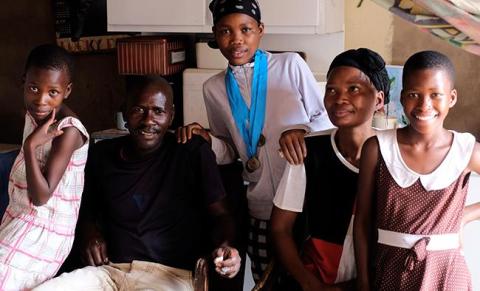
The prevalence of HIV infection globally is approximated to be 38 million people with majority these infections occurring in middle and low income countries. Sexual intercourse is the main source of infections and significant number of new infections occurs in persons who are in stable relationships such as marriage. “If one has an STI like gonorrhea or Chlamydia it is easier for them to get HIV,” says Rachael Njuguna, 27, a HIV Counselor based in Embu Level V Hospital, Kenya
STIs and HIV bring forth challenges in relationships and work place, “There is the blame game where if one partner turns positive for HIV infection, they accuse the other partner for bringing it to them. And if there is discordance it can lead to marriage break-ups and separation,” says Rachel. “Sometimes one can be discriminated at work due to stigma. If one is not able to disclose to the boss, they may be reprimanded for losing work hours to hospital visits and when it is too much, one can be dismissed from work.”
Disclosing STIs and HIV status to partners and colleagues can be a difficult task, “When one is tested alone and they turn HIV positive, it is not easy to go and disclose ones status to a sexual partner,” says Rachael. “Recently I tested one client who reacted and was defiant to inform the sexual partner of her status since they were not in good terms of late and she was planning to move to her mother’s house. Yet others are very supportive of their partners. I tested a discordant couple where the husband was positive and the woman was negative. The woman said, ‘if that is the case, it is better that I have known early and I will be able to take care of myself and support him.’”
Methods of disclosure
There are ways of disclosure. “One can disclose a status by themselves if they can be able to. One can also look for a religious leader like a pastor or a close relative to assist them disclosing their status to a partner.”
“There is also supported disclosure where the person who is positive can ask the partner to accompany him or her to the hospital and talk to a counselor and they are tested together and supported with information on how to live together and support each other,” she says.
Rachael advises couples to test for STIs and HIV regardless of the challenges that an undesirable outcome may bring, “Family testing is necessary because, when you are diagnosed early, you are able to live longer if you accept yourself and take the medications. And if one is tested and turns positive for HIV it does not mean the end of the marriage, one can still get kids even though one is positive. The earlier you are diagnosed the better since it also helps to curb opportunistic diseases which lead to death.”